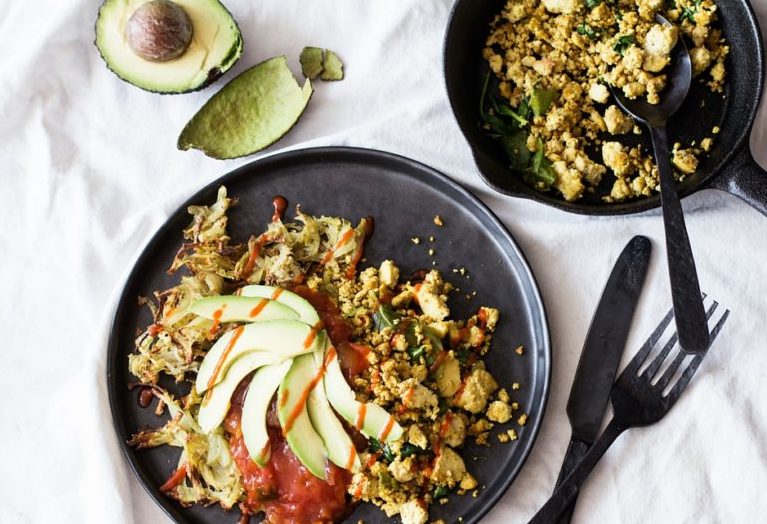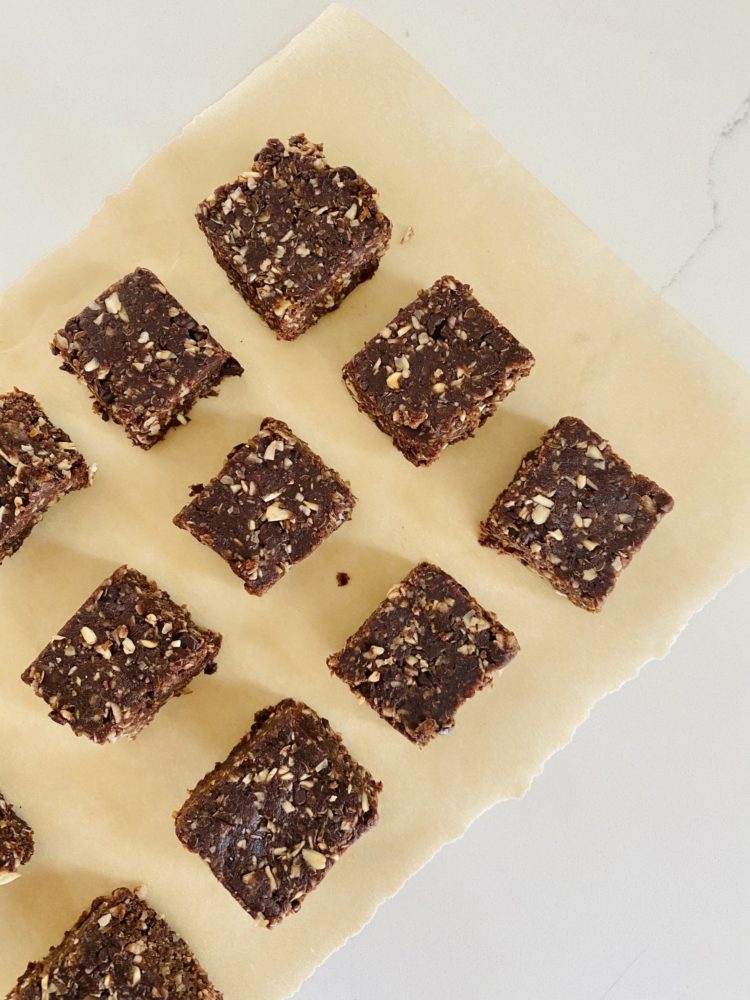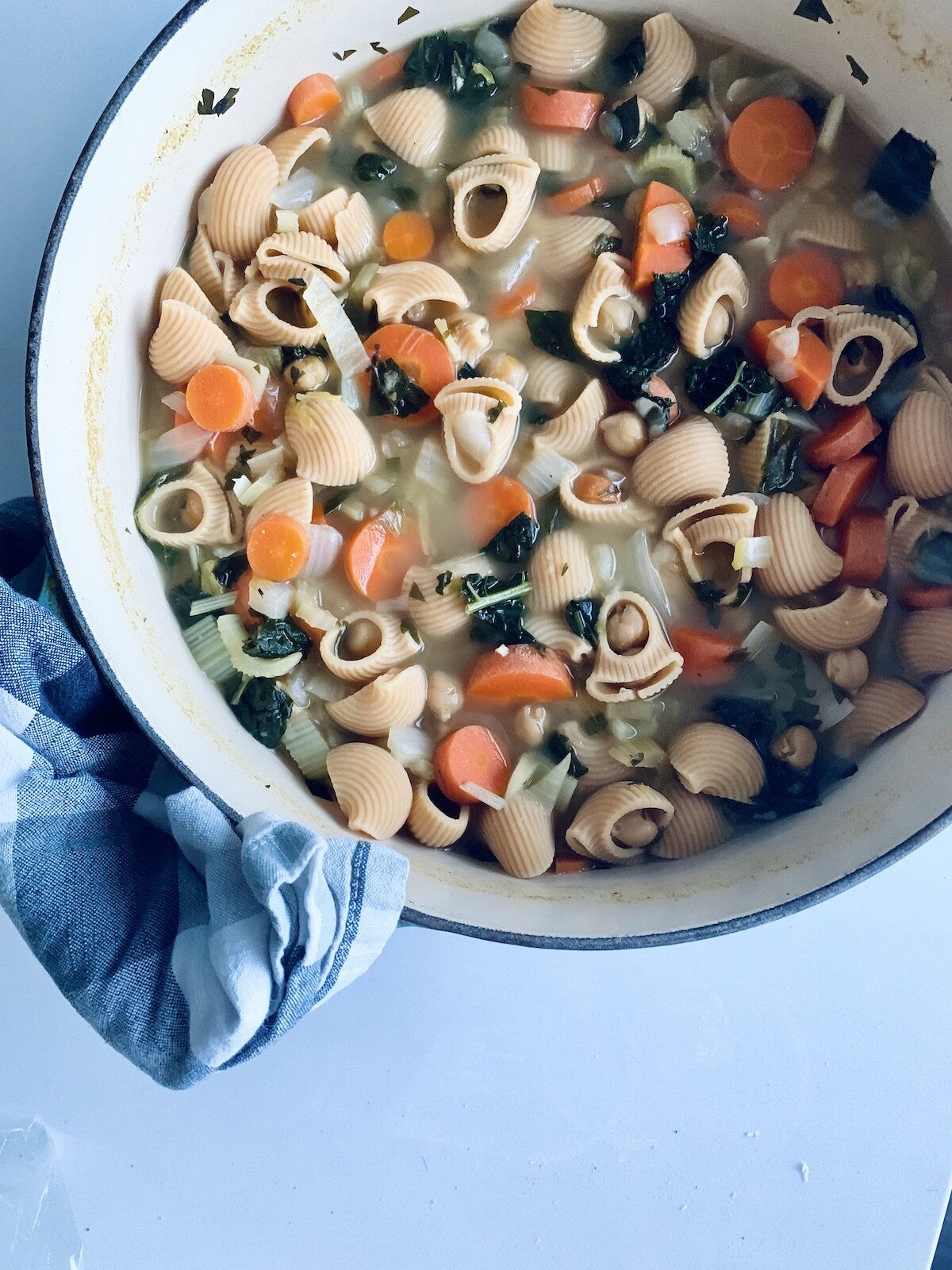In the evolving world of healthcare, many providers (including you!) are beginning to recognize the powerful role nutrition plays in health. One particular approach gaining momentum is, of course, plant-based eating. But simply telling patients to “eat more plants” isn’t enough. I’ve guided countless healthcare pros who are interested in how to help patients eat more plant-based, and I’m here to help you too!
Whether your patients are curious about cutting back on meat or interested in embracing a fully vegan lifestyle, it’s crucial to understand the nuances, special needs, and importance of balance that comes along with plant-based nutrition.
This guide is designed specifically for healthcare professionals—dietitians, physicians, nurses, health coaches, and wellness practitioners—who want to learn how to help patients eat more plant-based. Inside, you’ll find practical counseling strategies, evidence-based nutrition insights, and ready-to-use tools you can integrate into your practice right away.

Why Plant-Based Diets Are on the Rise
Plant-based diets are no longer niche—they’re mainstream! In recent years, there’s been a significant increase in patients seeking plant-forward eating patterns. The motivations vary:
- Reducing the risk of chronic diseases like heart disease and type 2 diabetes
- Improving energy, digestion, and inflammation
- Supporting women’s health across the lifespan
- Aligning with values around sustainability, animal welfare, or food justice
As professionals grounded in lifestyle medicine, we’re uniquely positioned to guide these patients. Research supports that well-planned plant-based diets can be nutritionally adequate and beneficial across all stages of life—including during pregnancy, lactation, and menopause.
Want to explore more? Read Plant-Based Diet Benefits for Women
What the Science Says: Benefits of Plant-Based Nutrition
Many professional organizations and national and international guidelines—including the Academy of Nutrition and Dietetics, the American College of Lifestyle Medicine, the Dietary Guidelines For Americans, the American College of Cardiology, and The Lancet Report—endorse plant-based diets as safe, effective, and beneficial when properly planned. Some of the most well-documented benefits include:
- Cardiovascular Health: Plant-based diets lower LDL cholesterol, reduce blood pressure, and support endothelial function.
- Diabetes Prevention & Management: Improved insulin sensitivity and reduced HbA1c levels have been linked to plant-based eating patterns.
- Hormonal Balance and Women’s Health: Rich in phytonutrients, fiber, and anti-inflammatory compounds.
- Longevity & Disease Prevention: Associated with lower rates of certain cancers, cognitive decline, and all-cause mortality.
- … and so much more!
For patients, making the leap from interest to action requires evidence-based guidance and support, and that’s where your expertise is essential.
Common Patient Concerns (and How to Address Them)
“But what about…”
The nutrition world is filled with misinformation and confusion. One of the key roles you’ll as a plant-based healthcare pro is myth-buster. When you’re learning how to help patients eat plant-based, it’s crucial to know the facts (so you can pass those facts on to your patients). Here’s how to respond to the most common questions patients ask when it comes to plant-based diets:
1. Will I get enough protein?
Yes! Most people (even athletes) can meet their needs with plant-based sources like:
- Legumes (beans, lentils, chickpeas)
- Soy foods (tofu, tempeh, edamame)
- Whole grains (quinoa, brown rice, oats)
- Nuts, seeds, and nut butters
- Protein powders from pea, hemp, or rice protein
Learn more about plant-based protein here.
2. What about iron and B12?
- Iron is abundant in plants (leafy greens, lentils, pumpkin seeds). Encourage pairing with vitamin C-rich foods to boost absorption.
- B12 is not found in plant foods and must be supplemented. A low-dose daily or high-dose weekly B12 supplement is essential for those eating primarily plant-based.
Use the B12 and iron handouts in the PBM Handout Bundle to make this easy.
3. How do I support bone health without dairy?
Dairy isn’t required for bone strength. Patients can meet their needs through:
- Fortified plant milks
- Leafy greens (collards, kale, bok choy)
- Calcium-set tofu, almonds, tahini, figs
- Sunshine or vitamin D supplementation
Learn more about plant-based eating and bone health here.
4. Do I need omega-3s and iodine?
Yes. While plant-based eaters often get fewer of these, they can be addressed by:
- Ground flaxseeds, chia, walnuts (ALA omega-3s)
- Algae-based DHA/EPA supplements
- Iodized salt or sea vegetables for iodine
The PBM Supplement Guide is the perfect reference to brush up on plant-based supplement needs.
How to Talk to Patients About Plant-Based Eating
Supporting patients through a dietary transition requires more than education. It calls for compassion, curiosity, and collaboration.
Use Motivational Interviewing
Start with open-ended questions:
- “What inspired your interest in eating more plant-based?”
- “What challenges do you see with making this change?”
- “What’s one plant-based meal you already enjoy?”
Emphasize Flexibility
Plant-based doesn’t have to mean 100% vegan. You can support patients at every stage:. Even small changes can yield meaningful results! Celebrate every plant-based step, rather than focusing on strict definitions.
Patient Education Tools That Make Counseling Easier
You don’t have to reinvent the wheel. When patients are curious (or overwhelmed!), visual, easy-to-understand handouts can reinforce your recommendations and provide an easy reference after they leave your office.
That’s why I created the PBM Handout Bundle—a suite of printable tools designed specifically for plant-based women and the professionals who support them.
What’s Inside:
- A plant-based nutrition plate that makes meal-building simple
- Nutrient-specific guides on iron, calcium, protein, iodine, B12, and omega-3s
- Visual meal blueprints for smoothies, breakfasts, bowls, and salads
These are the same tools I use in my practice, and now they’re available for you too.
Get the PBM Handout Bundle here
Continuing Education: Deepen Your Expertise
Looking to go beyond the basics? My Plant-Based Nutrition for Women workshop offers 1.5 CEUs for dietitians and walks through:
- Women’s unique nutrient needs
- Supplementation strategies by life stage
- Balanced plant-based eating for women
- All through a weight-inclusive, anti-diet lens
This is your opportunity to deepen your knowledge and expand your patient support toolkit in the intersection of plant-based nutrition and women’s health.
Join the CE Workshop here
Final Advice to Help Patients Eat More Plant-based
As a healthcare professional, you have tremendous influence in your patients’ lives. It’s such a responsibility and privilege to stay on top of the latest nutrition science to pass on to patients, but hard to find the time amidst an overflowing schedule. I get it!
That’s why I created resources for you – to make it easier to stay on top of the latest nutrition guidelines and to share that information with your patients in effective, engaging ways.
Every time you share a handout, bust a myth, or offer reassurance, you make plant-based eating more accessible and sustainable for your patients.
Ready to take the next step?
You don’t need to have all the answers, just the right tools. Let’s make plant-based nutrition part of your toolkit!


